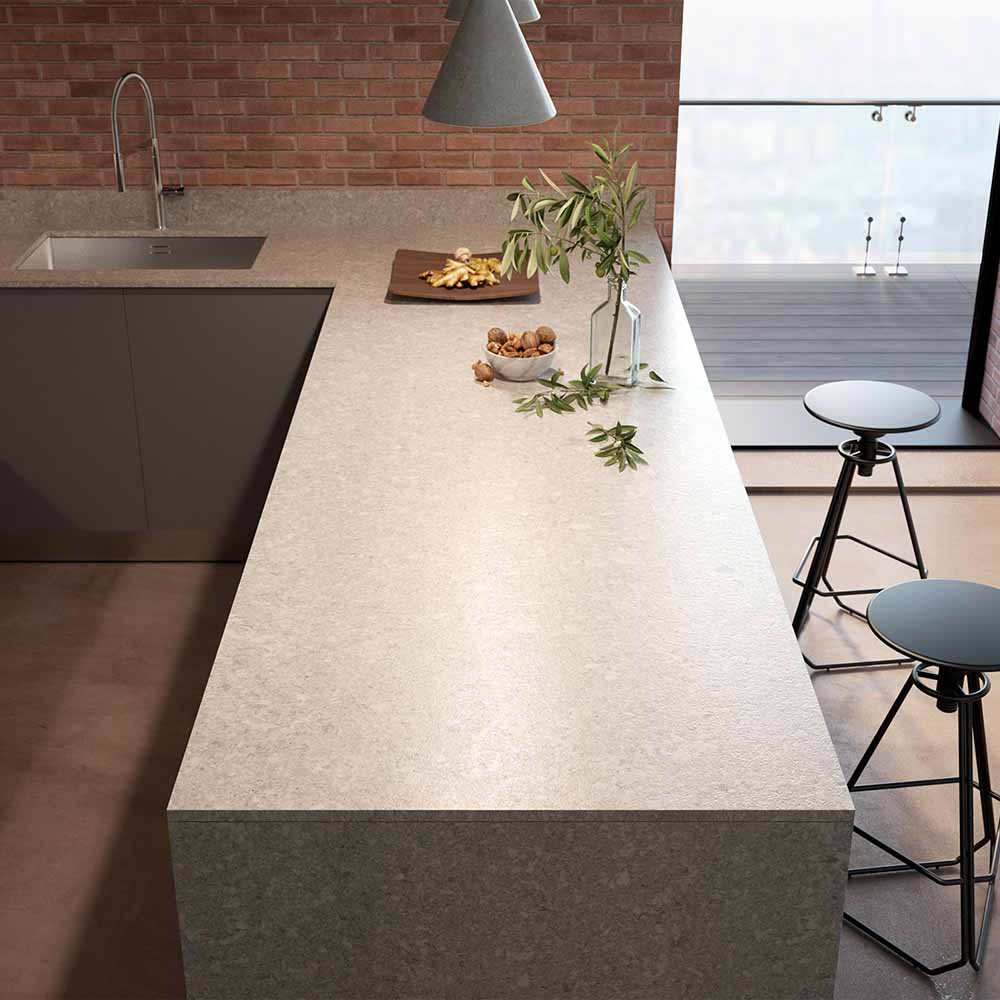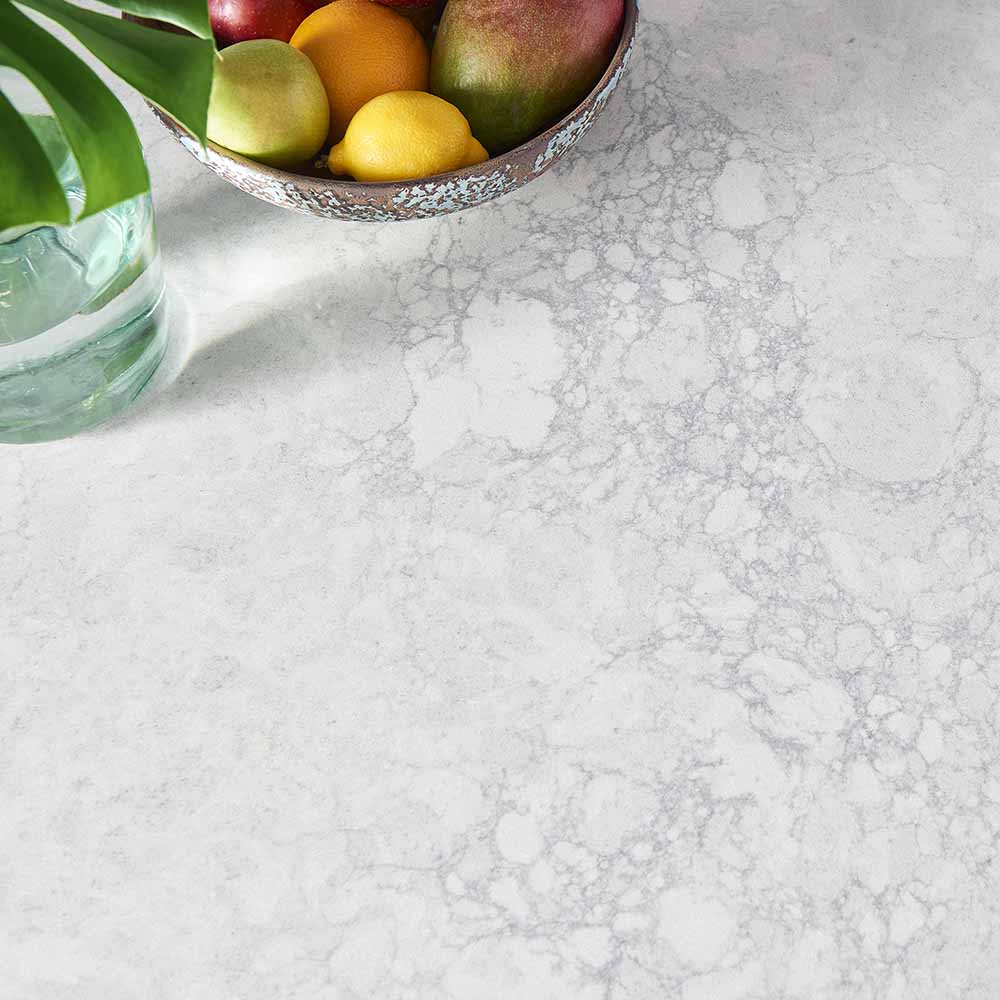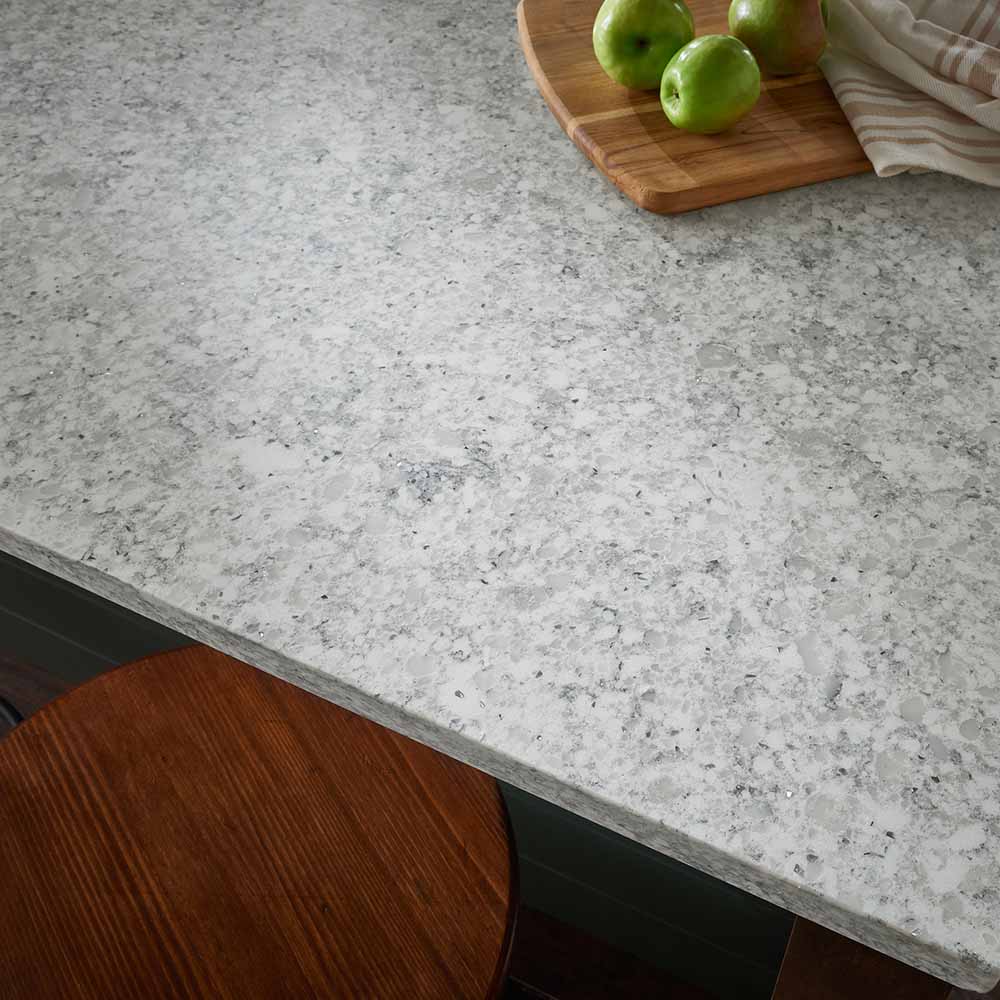Quartz countertops blend the beauty of natural stone with engineered resilience, making them a favored choice for homeowners seeking both elegance and practicality in their kitchens and baths. To preserve their pristine condition and ensure their longevity, a tailored approach to maintenance is required. Here’s a detailed, unique guide on how to keep your quartz countertops as splendid as the day they were installed. Fairfax Marble, known for their expertise in high-quality quartz materials, offers personalized advice and solutions to maintain the impeccable condition and extend the lifespan of your quartz countertops.

This may interest you: Embracing Quartz Countertops: The New Era of Kitchen Design
Table of Contents
ToggleRoutine Cleanliness: A Soft Touch
Embrace the habit of gentle, daily care to prevent the build-up of debris and spills on your quartz countertops. Employ a damp, soft microfiber cloth combined with a simple solution of soap and water for effective, non-abrasive cleaning. Employing gentle circular motions can help avoid any potential surface damage while ensuring the countertop remains spotless and glossy.
Immediate Action on Spills
Despite quartz’s reputable stain resistance, certain spills can be more troublesome than others, particularly those that are acidic or highly pigmented. Act swiftly to blot and clean spills from substances like coffee, wine, or tomato sauce to prevent them from becoming blemishes that mar the surface’s beauty.
Thermal Considerations: Cool and Protected
Quartz can withstand moderate temperatures, but sudden changes or extreme heat can compromise its structural integrity. Protect your countertops from potential heat damage by using protective barriers such as trivets or mats under hot cookware. This small step can prevent thermal shock and maintain the surface’s integrity.
Scratch Prevention: Cut with Care
Though scratch-resistant, quartz countertops are not immune to damage from sharp objects. Maintain their smooth finish by using cutting boards for all slicing and dicing activities. This not only preserves your countertops but also ensures safer food preparation practices.

Deep Cleaning of Quartz Countertops: The Safe Way
Occasionally, your quartz might require a more thorough cleaning to restore its sparkle. Opt for pH-balanced cleaning agents specifically recommended for quartz and avoid harsh chemicals or abrasive scrubbing tools. A thorough rinse and dry after deep cleaning will leave your countertops shining and residue-free.
Chemical Awareness: What to Avoid
Certain substances can harm quartz, diminishing its appearance and durability. Steer clear of harsh chemicals like bleach or abrasive cleaners that can dull or etch the surface. If a hazardous substance comes into contact with your countertop, immediate rinsing with water is critical to mitigate potential damage.

Professional Intervention for Complex Issues
While everyday maintenance can be managed independently, some situations may require professional attention. If your quartz surface suffers from deep scratches, persistent stains, or other significant issues, consulting with a stone care professional can provide the necessary restoration and advice to prevent future problems.
In Summary
The lasting beauty of quartz countertops is not merely a product of their material but also a result of attentive, regular care. By incorporating these guidelines into your daily routine, you can ensure that your quartz countertops remain a dazzling, durable part of your home’s aesthetic for years to come. True to their nature, quartz countertops reward those who treat them with care, offering enduring beauty and functionality in return.
FAQs
1. What is the composition of quartz countertops? Quartz countertops are crafted from a blend predominantly consisting of natural quartz granules, combined with a mix of polymer resins and color pigments, typically making up more than 90% of the final product.
2. Is it necessary to seal quartz countertops periodically? No, sealing is not required for quartz countertops due to their inherent non-porous structure, which is a result of the manufacturing process involving resins that seal the stone.
3. How well do quartz countertops tolerate hot objects? While quartz countertops are somewhat resistant to heat, they are not impervious. It’s best to use protective barriers like trivets or pads when placing very hot items directly on the countertop to prevent damage.
4. Are quartz countertops immune to scratches? Quartz is highly resistant to scratching, but not completely scratch-proof. It’s recommended to use chopping boards and avoid abrasive materials to keep the surface in pristine condition.
5. Can quartz be used in outdoor settings? Typically, quartz is not suited for outdoor installations due to its sensitivity to UV light, which can lead to color fading and material degradation over time.
6. What is the best cleaning method for quartz countertops? The optimal way to clean them involves using a soft cloth paired with mild detergent and water, avoiding harsh chemicals to preserve the integrity of the countertop.
7. How resistant are quartz countertops to staining? Thanks to their non-porous nature, quartz countertops exhibit excellent resistance to staining, making them ideal
for busy kitchens and bathrooms where spills occur. However, it’s still advisable to clean up spills promptly to maintain their pristine look.
8. What’s the procedure for fixing chips in quartz countertops? For repairing chips in quartz, specialists typically use a matching resin or epoxy to fill the affected area, restoring the surface’s smoothness and uniformity. It’s best handled by professionals to ensure a seamless repair.
9. In what ways do quartz and granite countertops differ? Quartz offers a more uniform appearance and requires less maintenance than granite since it doesn’t need sealing. Granite provides a unique, natural aesthetic but requires more upkeep to prevent staining and bacteria growth.
10. Are there materials or items that should not come into contact with quartz countertops? To maintain the longevity and appearance of quartz countertops, avoid exposing them to harsh chemicals like drain cleaners, paint removers, or heavy solvents. Also, refrain from placing excessively hot items directly on the surface to prevent thermal shock and potential damage.


Pingback: Embracing Quartz Countertops: The New Era of Kitchen Design